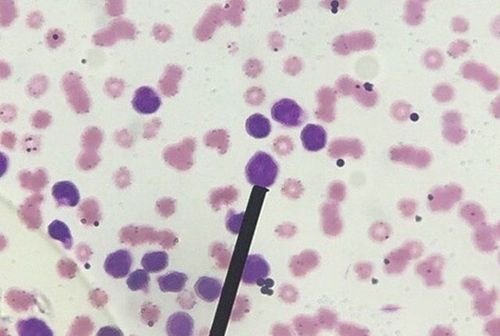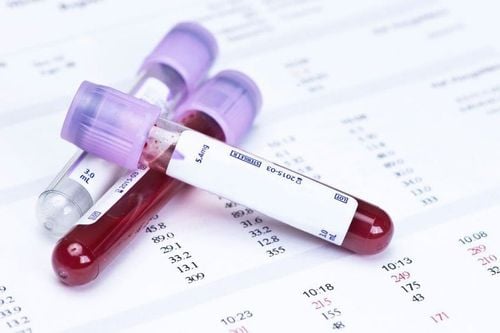This is an automatically translated article.
Article written by MSc.Dr. Mai Vien Phuong - Department of Medical Examination & Internal Medicine - Vinmec Central Park International General Hospital
Celiac disease is also known as gluten sensitivity or gluten intolerance. This is an allergy to a form of protein called gluten, which does not allow the body to absorb gluten.
1.Immune disorder
Formation of autoantibodies
In patients with Celiac disease, there is the formation of specific antibodies to gluten proteins. Since the 1970s, Shiner and Ballard have demonstrated increased deposition of extracellular immunoglobulins, especially IgA, in the ileal mucosa of children with Celiac disease after eating gluten. In 1997, Dieterich and his colleagues discovered that transglutaminase2 (TG2) is the specific autoantigen in the immune disorder in this disease.
This is a calcium dependent enzyme that regulates and de-amides the gliadin peptide chain, thereby forming an antigen-determining region (epitope) that binds to HLA-DQ2 and is recognized by T cells. On a gluten-free diet, the words TG2 antibodies will be produced. These antibodies have been found in the intestinal mucosa under the basement membrane and around small capillaries or within the lumen of the intestine.

Besides, gluten will activate a series of immune responses that change the permeability of cell membranes and actually promote the death of intestinal epithelial cells.
This allows the undigested gluten peptide fragments to reach the subepithelial junction and bind to TG2 antibodies. This complex then presents antigens that activate CD4+ T cells. These antibodies can be detected in the patient's serum as IgA and IgG. When following a gluten-free diet, the levels of antibodies will gradually decrease. Extra-gastrointestinal symptoms of Celiac may be related to the deposition of TG2 IgA antibodies in the liver, kidneys, lymph nodes, and muscles.
2.Role of innate immunity and responsive immunity
Damage in Celiac disease is completely reversible when gluten is removed from the diet and reappears if gluten is present in the food. Both the appearance of TG2 antibodies and the increased number of cytotoxic T cells in the epithelium are dependent and variable in the presence of gluten.
In patients with Celiac, there is an increased concentration of interleukins, mainly IL-15, and increased expression of group l histocompatibility complex molecules in the epithelium. All these factors suggest a strong response of the adaptive immune system as well as the involvement of the innate immune system in the complex pathogenesis of Celiac.
To summarize, gluten affects the intestinal mucosa through two mechanisms.

The first mechanism is that the 19-mer degraded peptide fragments induce nonspecific innate immune responses that activate IL-15 production from enterocytes. This interleukin promotes the release of NF-KB and oxidants such as nitric oxide that activate programmed cell death and play a key role in "opening" the binding site between epithelial cells. . The second mechanism is through an immune response that increases cell membrane permeability, allowing the 33-mer degraded peptide fragment to reach the subepithelial junction and be de-amide radicalized by the enzyme TG2. dendritic cell-activated IL-15 increases the expression and expression of gluten amide deprotonated peptides and activates a series of Thi-responsive pathways that release IFNY. Vinmec International General Hospital is a prestigious address trusted by many patients in performing diagnostic and treatment techniques for chronic inflammatory bowel diseases... Along with that, at Vinmec Hospital, the implementation diagnosed through gastrointestinal endoscopy with the Olympus CV 190 endoscope, with the NBI (Narrow Banding Imaging - endoscope with narrow frequency range of light) function, resulting in clearer images of mucosal pathology analysis compared to Conventional endoscopy detects ulcerative lesions in the gastrointestinal tract. Vinmec Hospital with modern facilities and equipment and a team of experienced experts who are always dedicated in medical examination and treatment, customers can be assured of gastrointestinal endoscopy service at General Hospital. Vinmec International Faculty.
Please dial HOTLINE for more information or register for an appointment HERE. Download MyVinmec app to make appointments faster and to manage your bookings easily.














